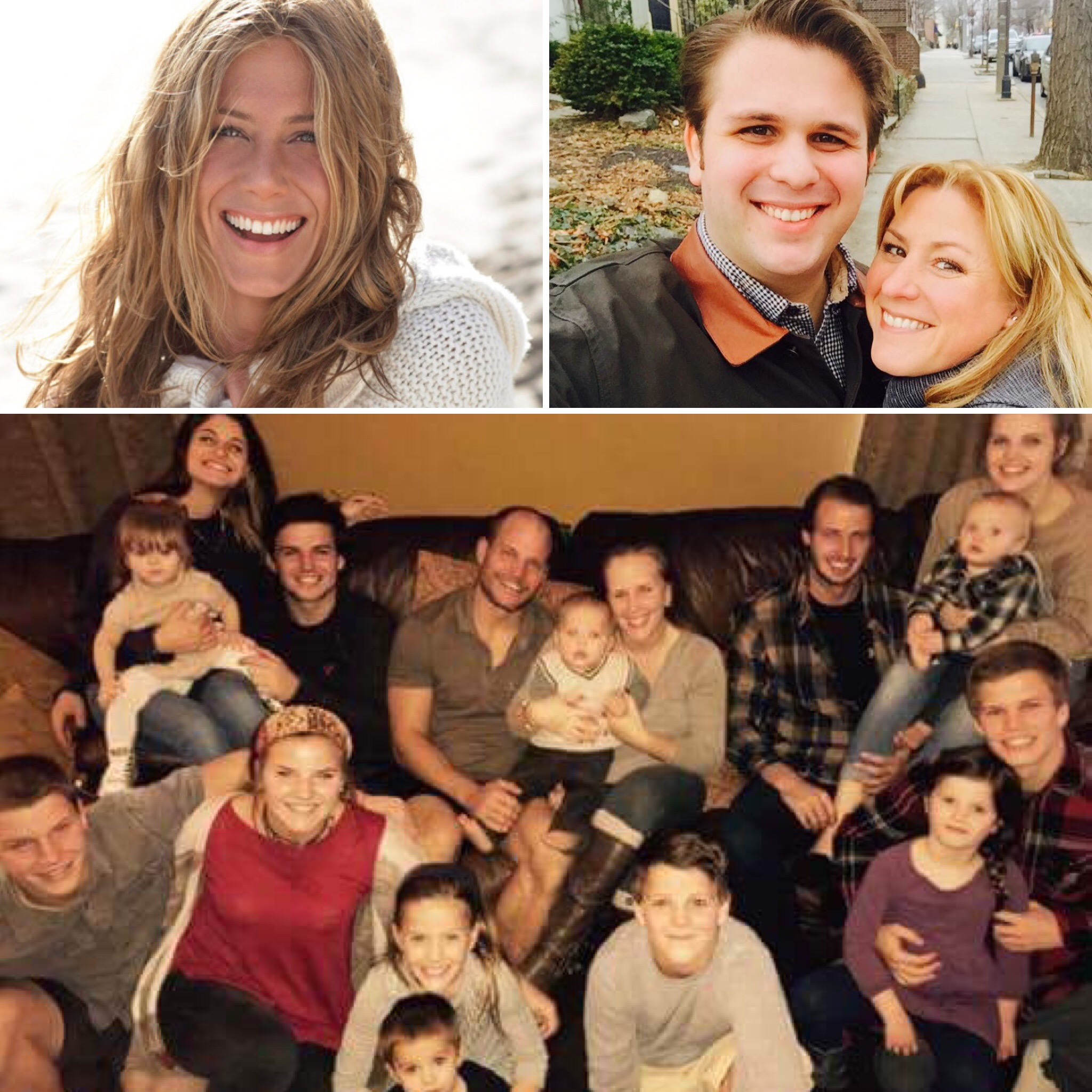A few months ago, my building principal asked me to be the keynote speaker at SUMMIT23 for PA Educational Leaders. I was honored, and terrified. What in the world would a high school teacher and, let’s face it, one-time author have to say to a banquet room of hundreds of administrators? After some glasses of wine and a lot of deleting, here’s what I came up with.
August 6, 2023
The Alloy Hotel
King of Prussia, PA
Thank you so much. You know, when I told my 12th grade counter-part and work-wife, Rachel, that I was asked to speak at this conference, she said, “Uh huh. Right, right. So, hundreds of administrators, correct?” I said, “mmm hmm, yeah.” And she said, “So basically every teacher’s worst nightmare. You said yes to every teacher’s worst nightmare…
But what an honor, right?”
Don’t worry about me though… I’m going to work out a sweet little deal with Jonathan Bauer for this to cover all of my evaluations for the remainder of my career. I’m sure he’ll jump right on board.
I thought to start, I’d go back in time and read the very first piece I ever had published. That 2015 publication came along much later in life than my undergrad-self expected… about two decades later, to be exact—when my only child was in the midst of college, when I had said goodbye to a particularly endearing, particularly brilliant graduating class, when I had gone back to school, again, for the MFA… when I thought that maybe, just maybe, I had peaked in my career.
This is eight years ago. It’s called “The Meantime.”
Over two-thousand students have walked across my classroom threshold. I have counseled and consoled as they’ve stressed over research papers and graduation projects, evaluated poignant and disastrous essays, and conferenced with them regarding the beauty of a clear, eloquent sentence. But none of this was supposed to happen. Those students were not on my trajectory. They weren’t a part of my plan.
I was supposed to be a college professor and publish great poetry that scholars and academics would clamor to read. I was supposed to travel to writing conferences, rub elbows with Mary Ruefle, Phillip Levine, and Rita Dove, and wear clothes hand-woven by hippies in island communes. This was the plan.
But it didn’t happen.
Right before a psychology exam my sophomore year of college, I stared at a pregnancy test as a little blank window turned to the most dreadful, the most perfect little plus sign I had ever seen. The irony of my situation didn’t go unnoticed. There I was, studying the greatest thinkers of the women’s movement, supporting and promoting women’s reproductive rights, examining the confines of the patriarchy—and choosing to keep my baby. I was in love, after all. Very, very in love. I was also an idealist. What’s the big deal? We’ll stagger our classes. We can still make it.
We had our baby. I traded my courses in Medieval Women’s Literature, Shakespeare, and the Modernists for childbirth, breastfeeding, and parenting classes. We married a few months later and played house. He graduated on time and made it; I settled. I needed to find something to stay afloat and succeed. I needed something in the meantime.
After attaining my Bachelors in English Literature, I took a job at Upper Merion Area High School as a writing instructor, but I wasn’t yet certified to be a classroom teacher. Students composed thematic essays in their English classes, and then we conferenced on a range of skills from avoiding the hated run-on sentence to finessing the art of voice and tone. Much to my surprise, and contrary to even my own high school memories, teenagers were fun, and odd, and needy—a pubescent mishmash of potential, bright-eyed and acne-scarred. I was compelled. I’ll teach high school in the meantime. Just long enough to save some money for my graduate degrees.
Seeking some sort of regimen to balance my ad-hoc high school career and toddler play dates, I made my way to Cabrini College and enrolled in secondary certification classes. I immersed myself in the coursework. If, in the meantime, I was going to be a public school teacher, I might as well be an awesome one. I could do it all—investigate classroom management and evaluation practices and cuddle up at night reading Goodnight Moon; observe master teachers in the most struggling and difficult classrooms and play the supportive company wife to my husband and his growing team of colleagues; student teach, with surprising ease and success, and make it home in time for sidewalk chalk and backyard bubbles; dictate lesson plan notes into (get this) a handheld recorder while squeezing myself into a slinky evening gown for a stakeholder’s dinner. I was unstoppable.
For all of my success, the stigma didn’t disappear. The other moms, fifteen years my elder, interrogated, the company wives looked down their noses, my own teaching co-workers whispered. But she looks too young to be a mom. It was fine. Hurt feelings couldn’t exist in the limbo of the meantime. I had a job to do, there was money to make, there were goals to accomplish.
My meantime, somehow, turned into seventeen years. In that time, I received a contract position at Upper Merion, and they paid for my Masters in English. Life goals… check. But instead of sending out résumés and applications for college positions, I delved deeper into high school life. I even eventually, and at first reluctantly, became Department Chair. I attended my students’ activities, made a fool of myself at Faculty Follies, created collages of each graduating senior class, perfected the fine art of the college essay, celebrated each college acceptance, and dried tears when the rejections rolled in. I also used the literature to instill meaning in their strange, transitory existence—to remind them, as Walt Whitman does so eloquently, that they will, most definitely, contribute a verse.
But none of this was supposed to happen, and I’d be lying if I said it doesn’t get in the way. Each time I think I’ve had enough with the machine, when I just cannot fathom a new regulation, a new initiative, a new unqualified legislator seeking to undermine my own professional autonomy, someone is always there, at the completely right second, to pull me back—to remind me why I’m here.
I never aspired to the Hollywood-cliché classroom, but sometimes in twelfth grade English, where we discuss the meaning of life, the dramatic naturally occurs. Students’ lives are murky, and I adore that. All of their strengths and all of their flaws meld into this wondrous grey of reality. The student, who appeared to be a lost cause, manages to graduate; I win over the passive-aggressive asshole who, by all accounts, ends up not being an asshole; a mother, plagued with cancer, hugs me at graduation and asks me to look after her son when she dies; the pregnant girl, who needed someone to hold her hand in the doctor’s waiting room, ends up with PhD; a former student calls one night to say that she became a teacher and we discuss art, life, poetry, and death until the sun rises; a class collectively tears up over the beauty of “Do Not Go Gentle Into That Good Night” and composes a group poem for me; a student lingers after class to tell me he once hated poetry, and now writes sonnets in his free time; a boy loses his dog, stays after class to ponder life’s mysteries, and becomes a second son. And then there are those I have lost—those whose lives were cut short. Their ghosts remind me how I love them all like my own. How I fear for them when they leave my classroom. How I didn’t have any more children because of them.
Today, the memories are a blur. It’s almost as if there’s a suspension of time, in the meantime. Maybe I’m still that young girl trying to figure out years of faces, moments, days, classes. They all start to merge. Some days I can’t believe I’ve taught thousands of them. I snap hundreds of pictures to remind myself that they’re real—that they were actually in my grasp for a short time.
*Pause*
I’m going to stop right there for a moment… I’ll save the ending.
The Meantime, right? Some of you were in the meantime as teachers in your own classrooms. Some of you are there as you strive for that head principal position in your district, running your own building… some of you as you climb your way to superintendent where you can tackle our work on a much larger scale. After a quarter of a century, I get it.
For years before the publication of “The Meantime,” I had taught either the full text or a portion of Robert Pirsig’s Zen and the Art of Motorcycle Maintenance, and there is one particular line that I bring up throughout the entirety of my students’ senior year, and it goes like this… “It’s the sides of the mountain which sustain life, not the top.” The sides of the mountain. Do I have any hikers here? Good to know.
You see it wasn’t just “The Meantime” getting published, it wasn’t just teaching Pirsig all those years that did it. I was still at the sides—which is lovely with flowers, creeks, the occasional snake, but you know, we’re well equipped. I started getting published for real. And those pieces gained some attention. I started a book.
I knew if I wanted to test this for real, if wanted to finish that terminal degree, if I wanted to finish that book, I needed some, well… time. I needed to step away from the longest lasting home I ever knew, step away from five very sweet, very supportive classes of children, and to throw myself into the hike. So I saved up and took one semester and one summer and I did it all—all over this country and all over Europe I conquered fears. I travelled alone, met new people, drank many lovely varieties of red wine, and wrote and wrote and wrote, only to wake up in the morning and edit, edit, edit. I watched countless sunrises and as many sunsets, filling my lungs with delicious fresh air and my belly with new, fresh foods.
I climbed to the tops of mountains.
Interestingly enough, during one of my pit-stops back home, I stopped by Jonathan’s office to touch base. (This happened quite often, to be honest. This fear of missing out that, of course, never happens in the summer months.) I regaled him with all my adventures: the waterfalls I hiked to; the ancient churchyards I roamed; the beautiful people I met—each teaching me something new; the hundreds of poems I’d read as I listened to the crash of ocean waves and the ripples of pristine lakes.
“God, Jen. It sounds amazing. Sounds magical.”
The bell rang and students bustled in the hall outside his office window. I watched them.
“Yeah. Definitely. But no more magical than my dusty, old cinderblock classroom.”
And it’s was true. Probably the most honest, most raw words I’ve ever spoken.
There’s a Hebrew word I love: Shul. Traditionally it means school or temple—a place of learning. It also implies a sacred impression of something that was once “there.” A footprint on a path. The bones of an abandoned house that was once filled with love. A mark that remains.
That mark was never at the top of a mountain. And come to find out, I didn’t peak… that gut feeling I had was a natural evolution. My mind knowing that things would change; I would no longer be the same Ms. Rieger I had always been. And I shouldn’t be. I had to grow out of her and try on my new skin—even if it did look a little more weathered every morning when I stared in the mirror. I knew some questions would still linger—Is this the year they stop relating to me? Is this the year I lose touch? Even on those rough mornings though, I’m keenly aware that this job is important and what we get to do each day is a privilege… and I love that here, in this room, it’s kind of our secret, right? It’s so much more than a cliched meme, an inspirational poster, or even a heart-warming book that some middle-aged teacher wrote. It’s the indefinable Quality that Pirsig searches for. It’s sacred. And it’s on the sides of the mountain.
I’m sure you will spend this conference investigating new best practices and brainstorming new ways to drill down the data. I understand. It’s a big part of the work we do. We want our teachers to be equipped and we want our students to succeed.
But I’m here to tell you it’s ok to breathe. It’s ok to linger at the sides of the mountain just a bit. It’s ok to take a walk with the meantime. It’s ok to find a little more of life, a little more purpose within that walk. It’s ok to love those kids like they’re your own and love your teachers like they’re family. It’s actually essential. I’m here to tell you that goals are necessary, but when you think about reaching the top, consider these wise words a newly retired colleague once told me…. Sometimes the best thing that could ever happen to you is not getting what you want.
So I think maybe I’ll end with the conclusion of “The Meantime”…
When I learned the content, designed the lessons, wrote my thesis, and attended countless workshops on standardized tests, nobody explained how to handle the sorrow that comes with this beautiful, frightening job—the letdowns, the bureaucracy, the losses, the goodbyes.
But they also didn’t tell me about the joy.
Maybe the meantime has always been my time. Maybe this was the trajectory predestined in the stars, if you believe in that sort of thing. Maybe I won’t be recognized for the hundreds of poems I’ve composed. It’s okay. Maybe my kids are my poem—some stanzas are free verse, some structured, some with short line breaks, and some with enjambment that continues well past graduation day. All contributing to the verse of my life. All making my time here worth it.


 In observance of Mother’s Day, I thought I’d share this as a tribute for the many mothers out there– those who are biologically mothers and those who lovingly contribute to the lives of young people by mentoring, comforting, teaching, nursing… i.e. mothering. Many thanks to BUST Magazine for publishing the initial version of this story in July of 2016. I have since edited and added to it for my collection, Burning Sage. Also thanks to my girlhood friend, Jen, for allowing me to share this little glimpse into her beautiful family.
In observance of Mother’s Day, I thought I’d share this as a tribute for the many mothers out there– those who are biologically mothers and those who lovingly contribute to the lives of young people by mentoring, comforting, teaching, nursing… i.e. mothering. Many thanks to BUST Magazine for publishing the initial version of this story in July of 2016. I have since edited and added to it for my collection, Burning Sage. Also thanks to my girlhood friend, Jen, for allowing me to share this little glimpse into her beautiful family. 
